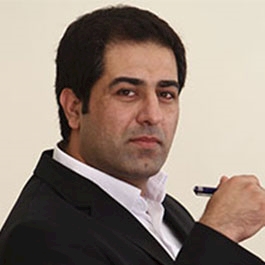Future Studies of the Political System in Yemen
“From The probability of a complete Political disintegration to the probability of forming a kind of participatory democracy”
Dr. Ebrahim Taheri
University professor and expert on strategic issues
Government has been changed as one of the most important human organizations in accordance with human needs, and has been added to its scope of functions day by day. Early governments used to provide a certain level of needs. In this regard, today’s governments can be divided into three categories: intelligent, semi-intelligent, and non-intelligent governments. Intelligent governments, while meeting the security and welfare requirements of citizens, also meet the dignity of them. Although semi-intelligent governments succeed in securing their citizens, they are only partially successful in providing part of the welfare and dignity of them. Non-intelligent governments are able to secure their own citizens by relying only on foreign forces. In terms of coping and resolving crises, the situation of the three states is also different. Intelligent governments are able to predict as well as to confront with all sorts of crises, so you can name them self-reinforcing. Semi-intelligent states are not able to predict future crises, but in the event of a crisis, they have the mechanism to confront with it without relying on foreign forces. Finally, it should be noted that non-intelligent governments cannot cope with small and local crises and if these crises occur, because of the lack of a mechanism for coping with them, they are becoming widespread crises; so non-intelligent governments are somehow self-destructive. The model of the political system in Yemen is non-intelligent and self-destructive. The inability to predict a variety of crises and multiple challenges of legitimacy, identity, sovereignty, and so on makes this situation more complicated. Especially that the country is affected by the negative entropies of the international and regional system. In relation to Yemen, this situation is quite visible; The state is at the initial stage of meeting the needs of its citizens. Even before the 2011 revolution, which was at the stage of the security paradigm, it was also unable to meet the basic needs of its citizens; As a result, expecting to meet the welfare and dignity of citizens was an unreasonable expectation. This situation, with the interference and influence of regional and sub-regional powers in this country, namely, Iran and Saudi Arabia on the one hand, and the United States and Russia as international activists on the other hand, has aggravated the agreement on the future of the political system in the country in a way that goes far beyond the possibility of a collapse of political construction, the probability of fragmentation in this country is very serious. However, the following scenarios can be raised regarding the future prediction of the political system in this country:
– The continuation of the war in Yemen and the instability of the political system;
-Complete Political disintegration in Yemen and reducing it into two North and South Yemen;
– The formation of a federal state in this country;
– The domination of a kind of social democracy in this country with an administrative focus.
If Saudi Arabia continues its destructive role in Yemen and no domestic group achieves a definitive victory, the current situation in Yemen will probably continue and will probably continue to exist in the coming years. Of course, this situation will not serve the interests of the Yemeni people, nor the long-term interests of Saudi Arabia, as this erosion war will only increase the security costs and legitimacy of Saudi Arabia.
The balance between the forces involved in the Yemeni civil war, along with the conflicts between the demands of the regional and sub-regional powers, Iran and Saudi Arabia, in the form of a geopolitical game, has brought about the possibility of a complete disintegration in this country. Indeed, the general disagreement between the two countries in the strategic game of the Middle East and the rule of the bipolar system in the regions below the region will make it impossible for the two countries to reconcile the simplest issues because Saudi Arabia does not acknowledge Iran’s minimal role in the political future equations of Yemen and it believes that the presence of Iran in Yemen is in conflict with its geo-communist and geopolitical demands. Indeed, Saudi Arabia has few options to transport its oil to the outside world: From the Persian Gulf and the Strait of Hormuz, it is possible to encounter Tehran’s possible pressure at times of crisis, thus it has to think about other alternatives, including the Gulf of Aqaba and Bab Al-Mandeb. Israel may also be a serious obstacle to the transfer of oil from the Gulf of Aqaba. As a result, the last option for Saudi Arabia is through the Bab Al-Mandab Strait which with the turmoil in Yemen in 2011 and the possibility of a government with an anti-Saudi approach, it may lose its control over Bab Al-Mandab, and complete its isolation from a geopolitical point of view. So for Saudi Arabia, all options are minus Iran in Yemen. On the one hand, Iran understands this well and tries to use the situation to establish its presence in Yemen; As a result, there is no minimal relationship between the geopolitical demands of Iran and Saudi Arabia. Therefore, the result of this situation could be the breakdown of Yemen and the return to the situation of a country in the north and another in the south of this war-torn country. On the other hand, the general disagreement between Iran and the United States in the Middle East and Russia and the United States makes this scenario closer to reality. Especially that this time the Houthis are not aligned with the central government. The breakdown of Yemen and its conversion to both the north and the south would appear to increase Iran’s political influence in the South, as ideologically, the leaders of South Yemen and Tehran’s leaders have the same perceptions about the role of Saudi Arabia and the United States in the region and especially that from a religious point of view, both are Shiites.
Given the concerns that have been made by the Zaidi population over the past 100 years in relation to Sunni nationalist rule in Yemen, it seems that the governance of the decentralization system in Yemen, whether full federalism or incomplete federalism of the Iraqi type, is a special utility for the Zaidi Shiites in this country. The operation of this type of government system will also provide Iran’s maximum interest in Yemen and will force Saudi Arabia to accept Iran’s role and influence in this country.
The last and most desirable scenario that could increase Iran’s influence and the Yemeni nationalist demands is the end of the civil war in the country and the implementation of a system based on consensus democracy in which the power of each power group in the constitution has been accredited. In the framework of this system, while a system based on administrative concentration in the country will take place, there will be a kind of political division of power based on which the prime minister will always be elected from among the Sunnis, and the President or the Chairman of parliament will be available to Zaidi Shiites. This system can be realized if the parties involved in the civil war get tired of the existing situation and there is a kind of deadlock, a change in Saudi leaders takes place and their approach to Yemen changes.
* This article is originally published in Persian and translated by A.R. Mirjomehri.
**The views expressed in this article are those of the author(s) and do not necessarily reflect the views of IIWFS.





